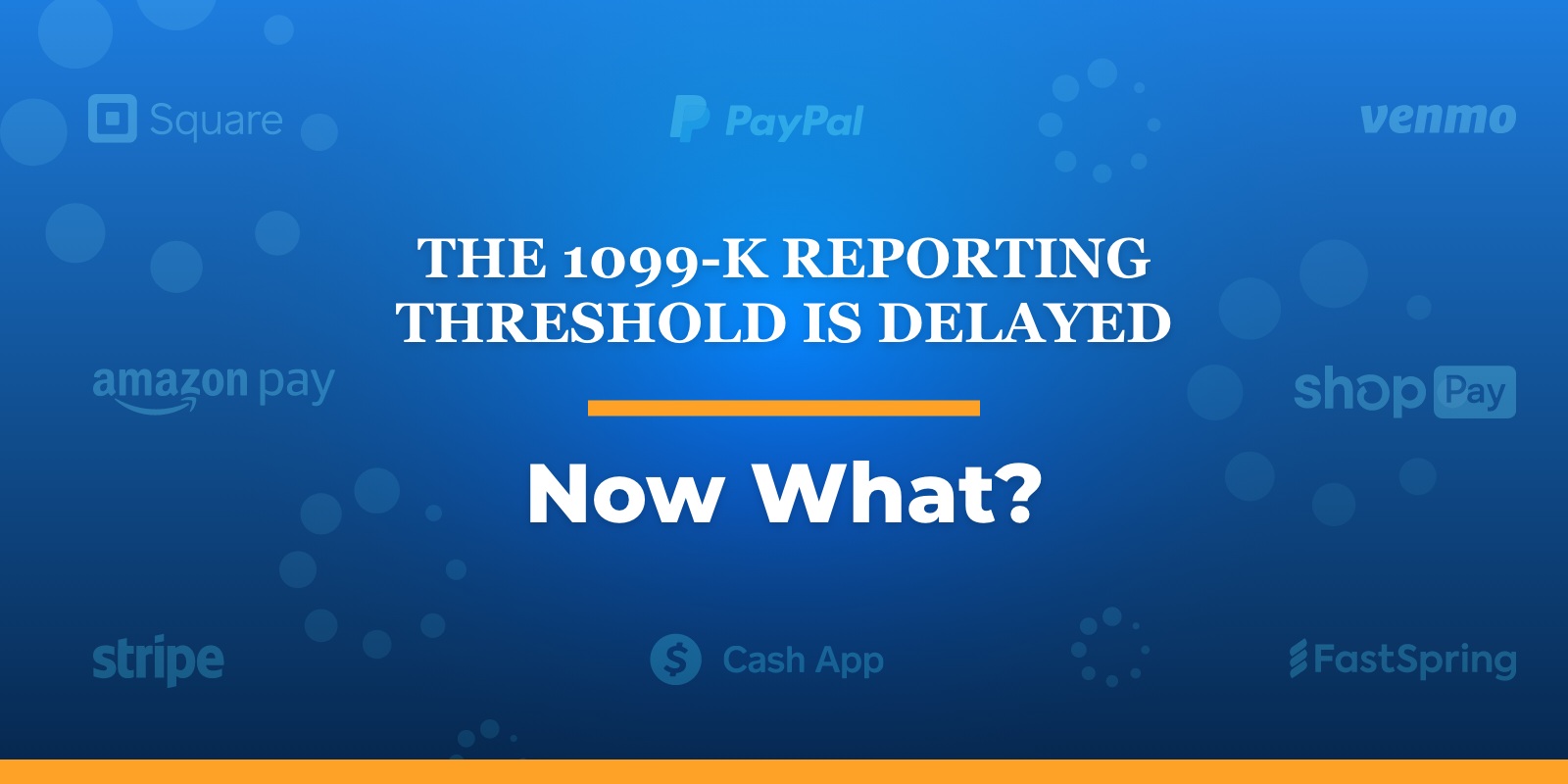
In December 2022, the IRS announced that the new reporting thresholds for Form 1099-K have been delayed. The new thresholds are part of the American Rescue Plan of 2021, which will require Form 1099-K to be issued by well-known third-party settlement organizations (TPSOs) for any aggregate transactions of $600 or more. Here’s an overview of what this means for your taxes.
Old 1099-K Thresholds vs. New 1099-K Thresholds
Prior to the American Rescue Plan of 2021, taxpayers would only receive Form 1099-K if they earned an aggregate amount of $20,000 in over 200 transactions for goods and services. The plan changed the reporting requirements by drastically lowering it to any payments exceeding $600. Beginning January 1, 2023, TPSOs were supposed to be required to report third-party network transactions paid in 2022 that exceed $600 through an annual Form 1099-K. However, due to concerns about lack of guidance, the existing tax return backlog, and taxpayer confusion, the IRS will delay the requirement until 2024. In other words, the original $20,000 and 200 transaction threshold will remain in place through the rest of 2023.
What This Means for Taxpayers
It is a lot more common for taxpayers to also be freelancers or small business owners now, especially those who receive payments for goods and services via third-party payment networks. These can include PayPal, Venmo, Amazon, Square, Cash App, Stripe and many more. 1099-Ks are only generated for payments associated with goods and services, so taxpayers should not worry about receiving one for personal expenses paid via these apps. For example, you might collect rent from your roommates through Venmo, which you then send to your landlord. This is a personal expense, and you will not receive a 1099-K. However, if you are the landlord collecting rent through a third-party payment network, you should expect to receive a 1099-K.
If you are a freelancer or small business owner who collects payments with a third-party payment app, you should use the delay to become more familiar with the new reporting rules that will take effect in 2024. You can also ensure that any transactions you receive through apps like Venmo or PayPal are correctly classified as a personal transaction and not a business transaction for goods and services. With the new rules taking effect, a single large transaction of $600 accidentally marked as a business transaction could trigger Form 1099-K to be generated. While this issue is correctable, it has to be done with the third-party payment network directly and the IRS will expect to see the reported income on your return until a correction is sent to them. This process could be time-consuming and cause further delays in processing your return.
Tax Relief for Freelancers and Small Business Owners
If the new rules go into effect and the IRS’s numbers do not match up with your own, you risk triggering an IRS audit, which can lead to unmanageable stress. You’ll want to avoid owing taxes now more than ever as IRS interest rates have recently increased, making your balance more expensive, especially with interest and penalties. Taxpayers should also note that this delay does not change any rules regarding taxable income. If you earn money through freelancing or your small business, you should report all income on your tax return, even if you did not receive a 1099-K. Our team of qualified and dedicated tax professionals can help if you have tax debt. If you need tax help, call Optima Tax Relief at 800-536-0734 for a free consultation.